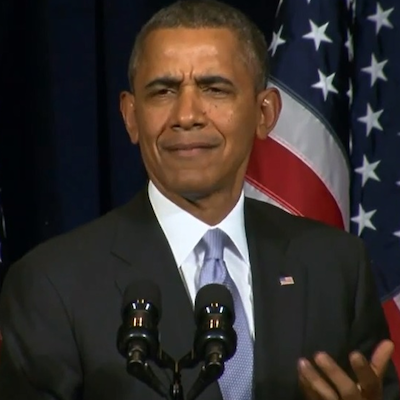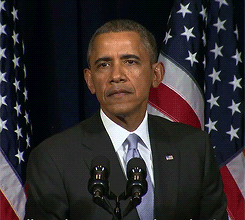Senators Tim Kaine (D-VA) and John McCain (R-AZ) want to get rid of the War Powers Act — slogan: “Consistently Ignored by Presidents Since 1973!” — and replace it with something that might actually work and better reflect realities of U.S. military operations today. Here’s the Wikipedia summary of the existing law, which officially is called the “War Powers Resolution of 1973“:
The War Powers Resolution requires the President to notify Congress within 48 hours of committing armed forces to military action and forbids armed forces from remaining for more than 60 days, with a further 30 day withdrawal period, without an authorization of the use of military force or a declaration of war. The resolution was passed by two-thirds of Congress, overriding a presidential veto.
The failed presidential veto was by Richard Nixon, the year before his resignation, but Congress was responding to significant public outrage about the secret, unauthorized bombings in Cambodia during the Vietnam War — which, while authorized by Congress, had also never been declared. (In fact, the last formal Declaration of War was part of World War II.)
Although it’s no surprise that Nixon rejected the legitimacy of the law — given his unusually heightened aversion to the legitimacy of applying any law to the U.S. Presidency — every president since then (except for possibly one incident in 1975 under President Ford, who had fairly recently been elevated directly from and by the legislative branch to the White House via the resignations of Spiro Agnew and Richard Nixon) has also officially refused to acknowledge its constitutionality as a general principle.
Even so, to be on the safe side, presidents have generally unofficially adhered to it by providing the proper notice to Congress more or less as a “courtesy” without acknowledging the resolution as the reason. A few instances are disputed as to whether this notice was provided. Congress has never been able to successfully enforce the resolution or end any conflicts with it, and the Supreme Court won’t get into the middle of that inter-branch fight.
Tim Kaine essentially feels this situation is absurd, as well as out of date, and he wants a compromise that preserves the ability of the executive to act quickly when necessary but also preserves the rights of Congress to have a say and maintain accountability. From the ThinkProgress article (linked above):
Rather than only having to notify Congress after launching military action, Kaine and McCain want the force presidents to consult with legislators prior to sending U.S. soldiers, sailors, and pilots into harm’s way.
Under current law, the president has to notify Congress whenever placing forces in areas where “imminent” hostilities are likely, and is given a sixty-day window to conduct the operation absent Congressional approval and another thirty-days allotted towards withdrawal. The new proposal would reduce that autonomy, requiring the Executive Branch to “consult with Congress before ordering deployment into a ‘significant armed conflict,’ or, combat operations lasting, or expected to last, more than seven days.”
That provision would exclude humanitarian missions and covert operations, and the initial consultation could be deferred in time of emergency, but must take place within three days after. The legislation would also raise a new joint committee composed of the heads of the Armed Services, Foreign Relations, Intelligence, and Appropriations in both Houses of Congress “to ensure there is a timely exchange of views between the legislative and executive branches, not just notification by the executive.”
Finally, the law, if passed and signed, would require a vote in Congress in support of or against any military operation within 30 days.
Now is a relatively good time to try to introduce such a revision, not too long after an angry Congress (and a well-timed revolt in the UK parliament) managed to talk down the Obama Administration from launching a major air campaign in Syria, proving that Congress still had at least a shred of influence on U.S. military actions after more than two decades of rubber-stamping.
But, in 2008, the Obama Campaign more or less signaled their opposition to a similar proposal. While unfortunate, this is not a huge surprise. Most presidents (or presidential hopefuls) reject out of hand any legal limitations on their powers as “commander-in-chief,” even despite the Constitution’s specific and intentional provision reserving the power to declare wars to Congress (a power typically previously wielded only by the monarch heads of state in the Europe of the day against which the Framers were comparing their system). President Obama doesn’t want to limit his own power (or that of his successors) to act decisively and quickly in the face of the “unknown unknowns,” as former Defense Secretary Donald Rumsfeld famously called them.





